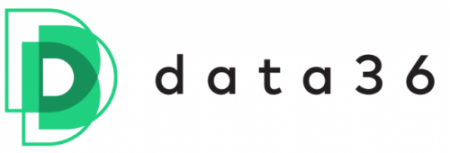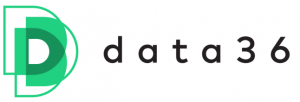I get this question a lot:
What’s the best computer (or laptop) for a data scientist?
In this article, I’ll answer it in detail and I’ll add specific recommendations, too.
Note: you can find many “best computers for data science” articles online… You have to know, though, that most of those articles feature affiliate links. (E.g. links to Amazon.) There is nothing wrong with that — except the obvious chance of bias… In this article, there are no affiliate links and just in general I’m not affiliated in any way with the products I recommend here. Here, you’ll read a 100% unbiased recommendation, based on my and my data scientist colleagues’ experience.
List of the best computers and laptops for data science (in 2023)
Before I get deeper into the topic, let me put here straight-away the short list of the best computers/laptops I recommend for data science:
- MacBook Pro 13″ or 14″
- MacBook Air M2
- Dell XPS 13 or Dell XPS 15
- Dell Inspiron 15.6″
- Lenovo Thinkpad X or T series
So what should you buy? The short answer is…
It doesn’t matter what computer you use.
Why?
Because 99% of the time you’ll use a remote server for all your computing-heavy data projects. (Well, at least, if you do data science seriously.) So your personal computer will, in practical terms, serve only as an “interpreter” between the server and yourself.
I wrote about this in detail in my remote server article (How to Install Python, SQL, R and Bash).
But here’s the idea in one picture:

See, it doesn’t matter how powerful your personal computer is… What matters is the computing capacity of your remote server.
Note: If you work for a company, you’ll use their remote server, so you don’t have to worry about that, either. On the other hand, if you use your own server (e.g. for your personal data science projects), you can easily scale its computing capacity up and down.
So what’s the best computer for a data scientist?
The answer is: any computer can do the job.
Well, of course, there are still better and worse choices — but the decision factors are a bit different than most aspiring data scientists think.
So let me go a bit deeper…
The operating system you’ll need for your data science projects
Choosing the right operating system is important!
There are only two good choices here:
- Either you go with a Mac (and with a MacOS)
or - with a Windows 10+ computer — that also has Linux (Ubuntu) on it.

It’s all about compatibility.
As I said, mostly, you’ll use a remote server for doing data science.
But there’ll be a few programs that, every now and then, you’ll also have to run locally on your computer. Just a few of these:
- Tableau and/or Microsoft PowerBI (or any other data visualization tools)
- Anaconda (if you want to prototype your data scripts on your computer)
- Terminal or iTerm (to connect to your data server)
- SQL Workbench (or other SQL manager tools)
- Sublime Text (or other script editors)
- Zoom, Google Meet, etc.
- etc.
Most of these tools are available for all three major operating systems (MacOS, Windows, Linux).
If you use a Mac, it’s simple. In my experience, all the data science tools work properly under MacOS. (The reason behind it is that – spoiler alert – usually the Mac is the preferred choice of most data scientists. So most software companies care a lot about making their products work well on Macs.)
If you have a Windows computer, my recommendation is to use Windows 10 (or anything above) — and install Linux (Ubuntu) on it, too. (Ubuntu is a free and open-source!) By using Linux/Ubuntu, you’ll have a proper Terminal application, for example… But to be honest, I find Linux a better operating system than Windows, in general. (This is only my personal opinion though.) Regardless, you’ll still need Windows because of a few programs that are not compatible with Linux (e.g. most data visualization tools.)
Note: Which Ubuntu version do I recommend? Well, it’s a question of taste again, so don’t take this too seriously. But. As a rule of thumb: I don’t like to use the always-actual latest versions of Ubuntu (for compatibility considerations) and somehow the even years seems to be always better (18.04, 20.04, 22.04…) than the odd ones.
Anyway, the point is: use either a Mac — or a Windows computer with Windows 10 and Ubuntu on it.
And I specifically advise against using more “exotic” operating systems for data science… E.g. a ChromeBook (with a ChromeOS) is a very bad choice because of the lack of compatibility with a lot of the above-mentioned software that you want to run on your computer. Similarly, I don’t recommend using an iPad or any other table devices for data science.
The Junior Data Scientist's First Month
A 100% practical online course. A 6-week simulation of being a junior data scientist at a true-to-life startup.
“Solving real problems, getting real experience – just like in a real data science job.”
A few other aspects
When you choose the exact model, you want to watch out for a few smaller things.
- You want to have a computer that’s easy to carry around. You will have to present your analyses and data science projects quite often to your manager, colleagues or clients. E.g. while I’m working on a data project onsite, I quite often grab my computer and go to show something to someone. I mean, today’s business environment, this is not rare nor specific for data science jobs only… But the point is: your computer should definitely be a laptop — and not a desktop PC. And I prefer it to be lightweight, too.
- I said that 99% of the time, you’ll use a remote server for data science tasks… but there will be that 1% when you’ll want to prototype something on your local computer. Maybe because you won’t have an internet connection (sitting on an airplane for instance), or maybe you’ll be just too lazy to fire up the connection to your server for the sake of one little test script…
So even if your computer doesn’t have to be a nuclear power plant, choose a decent one. (See the recommended computers later.) - Usability. You’ll use this computer a lot! So smaller things can become important, too. Your workflow has to be smooth and not broken by something inconvenient on your computer. E.g. an excellent touch pad, a bright and high-resolution display, good battery life, even a good wifi card… These things are important! Well, you’ll only recognize it when you don’t have one of these. (E.g. a wifi card that loses connection every hour can be very, very annoying.)
- And for data science, you won’t need any of these fancy features: touch screen, detachable screen, flip screen, etc.
Okay, with that said, let’s see my specific recommendations…
The best computers/laptops for a data scientist
I’ll keep this simple!
I’ll only recommend two laptops: a MacBook and a Windows computer.
MacBook Pro 13″ or 14″
Right now, I personally use a MacBook Pro 13″.
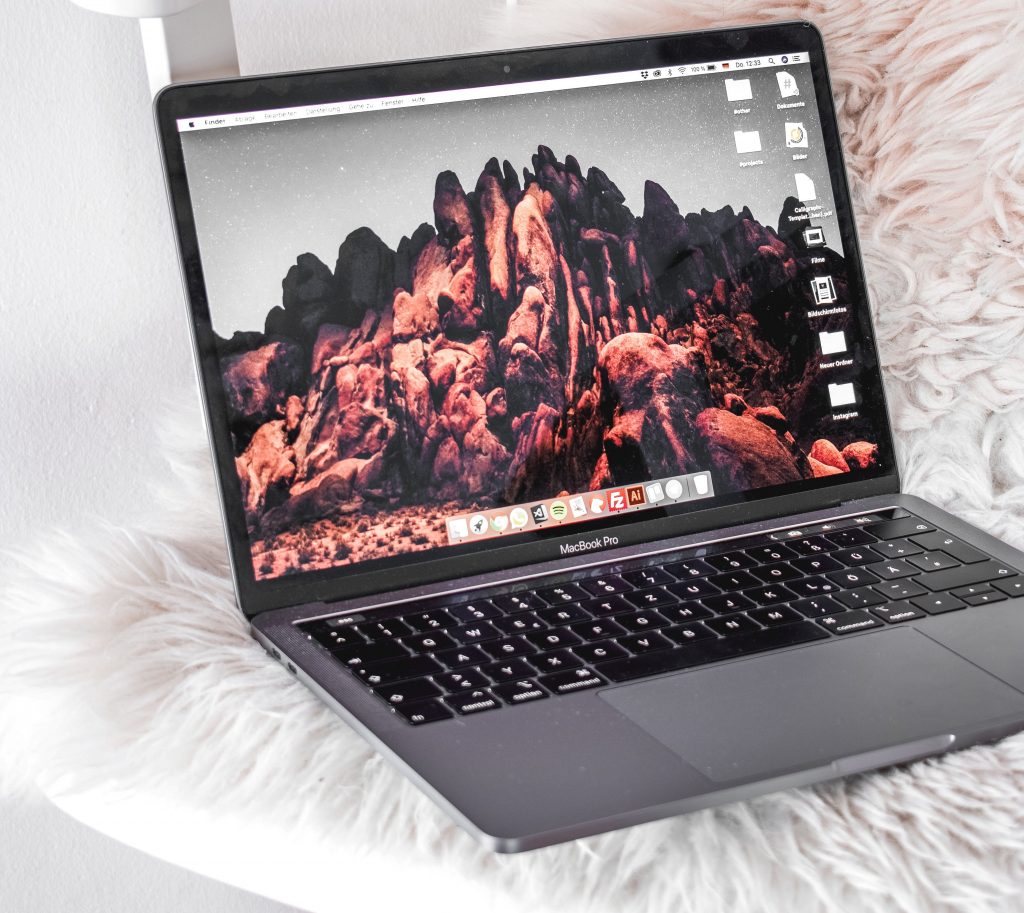
I’ve used all kinds of Apple laptops in the last 8 years for my data science projects: MacBook Air, MacBook Pro 13″, MacBook Pro 15″… and I loved them all. I have never had any problems with any of them. The cheaper, lighter and less powerful MacBook Air worked just as fine as the more expensive and robust MacBook Pro 15″.
Well, I have to admit that the 2016-2020 editions of the MacBooks showed a bit of a downward trend in quality. Their famously bad keyboards and the lack of ports were a big pain in the neck for every Apple user… Including me. But even these computers, from every other aspect (quality, usability, computing power, etc.) were still one of the best computers on the market at the time.
Luckily, the downward trend is over and with the new 2021-edition 14″ Macbook Pro all the issues were fixed and we got a very, very reliable, user-friendly and powerful computer to work with.
With that said: any MacBook is a perfect choice for a data scientist.
I specifically chose (and recommend):
- Either the older before-2016 MacBook Pro 13″ because it’s a good transition between the light-weight Air and the more powerful MacBook Pro 15″. This is what I use and — I’ve actually bought a 2014-edition used one for $500. It’s 8 years old and works perfectly! I also carry it around in my backpack quite often, so I wanted a lighter computer. And for me, screen size is not an actual problem because everywhere I work on data science projects for a longer time (office, home), I have additional external monitors.
- Or the after-2021-edition Macbook Pro 14″ because it’s just great. (Powerful with the M1/M2 chip, lightweight, etc.)
One more thing: the biggest drawback with Macs is the price tag… the new 14″ models start ~$1,999. (But again, you can get a cheaper used one like I did.)
Anyways, if you can afford it, I recommend going with a MacBook.
Note 1: Important! If, for some reason, you decide to buy a 2016-2020-edition MacBook Pro after all, I recommend that you buy one *without* a touch bar. Apple – for some reason – decided to replace the usual function keys with a touch bar in the top row of the keyboard. It’s very frustrating.
Note 2: Also be aware that the 2016-2020 MacBooks offer only USB C ports… So you’ll have to buy a few adapters, too. It’s somewhat annoying but this is how it is for now. I always carry these three cables with me: a USB-C to USB adapter; a USB-C to HDMI adapter and a USB-C to Apple Lightning adapter.
Dell XPS 13 or Dell XPS 15
My backup computer is a Dell laptop that I bought 10(!) years ago and it still works well. It’s not the same model that I recommend here though.
But my point is this: Dell is a very good brand that I trust a lot. They create high quality, long-lasting computers. And in my experience, their customer service is excellent, too. I have a few data professional friends who use a Dell XPS model… And they backed it up, too: A Dell XPS laptop fits very well for the needs of a data scientist.
E.g. a DELL XPS 13″ with 8GB memory and with a core i5 processor seems to be a great alternative to a 13″ MacBook Pro.
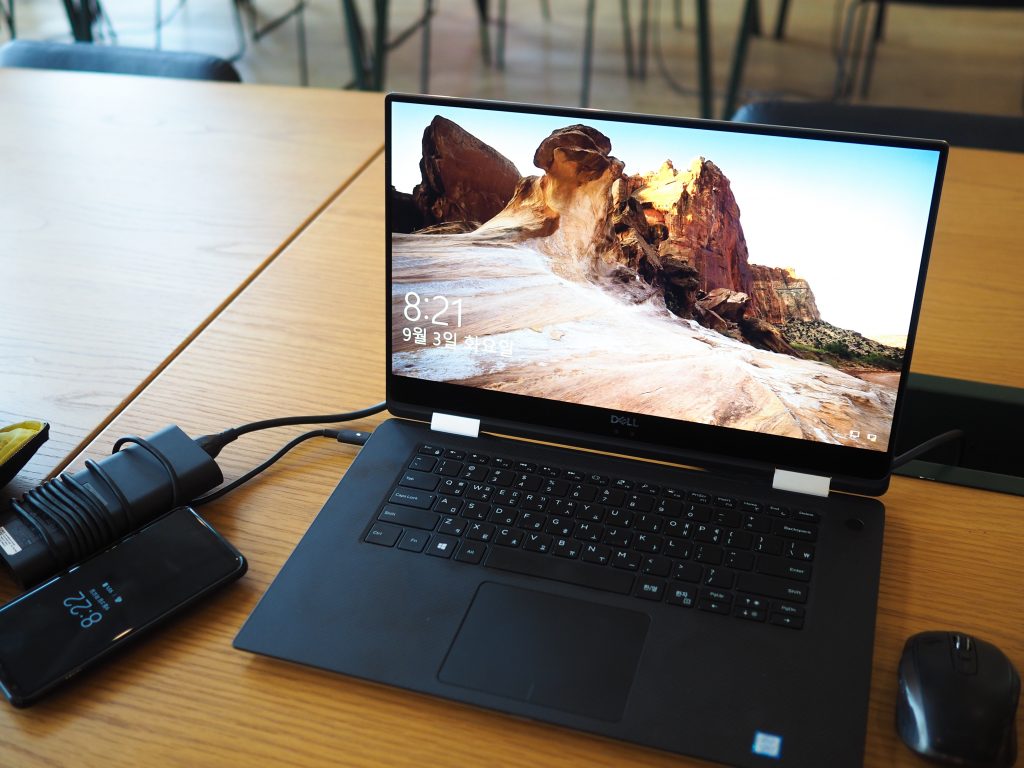
As I described above, I prefer the 13″ screen size. But there is a 15″ version here as well. Also, you can customize your XPS in many ways: more RAM, better processor, even touch screen (you won’t need that though)…
So if you prefer to go with a Windows computer, the Dell XPS is an excellent choice!
All in all
So all in all, in my opinion, right now, these are the two best computers for a data scientist:
- Either a MacBook Pro 13″ (or 14″)
- Or the Windows alternative is a Dell XPS 13″ (or 15″)
Readers’ choice
Some readers were nice enough to send in their computer recommendation for doing data science. There were two laptops so far that came up quite frequently. (They might be also more cost-effective than my recommendations.) I haven’t tested them myself but you might want to take a look:
- Dell Inspiron 15.6″ (make sure you add +8 GB RAM)
- Lenovo Thinkpad X or T series (Note: I got x220-x270 recommended in the email – thanks Dino! – one of my friends use a T series Thinkpad.)
- Razer Blade Stealth (thanks to Arnaud’s sending this in)
Update in 2023: considering the AI boom
Although I’m very-very happy with my old Macbook, in early 2023, I’ve started to think about selling it and buying a new Macbook Air M2. The trigger of these thoughts was the boom of artificial intelligence projects.
AI projects are very-very new — and it seems (based on my initial experience at least) that in these projects the prototyping mainly happens on the local computer. There are multiple reasons for that –but if I had to put it in one sentence: there’s not yet a well-built-out and fine-tuned go-to cloud solution that can serve AI projects. At least not a cost-effective one. Until this one is solved, the need for a good local computer for data scientists will go up. (Well, again: only if you want to work on artificial intelligence projects. As a junior data scientist, you not necessarily will.)
Some — well, most — AI projects need heavy computing capacity and Apple’s M2 chips just become handy, in this case. The MacBook Air M2 seems like a really good value for money compared to other models of Apple. It also got good reviews and fixed all the mistakes of previous models.
I’ll update this article with my personal experience when I buy it!
External monitors
Oh and one more thing…
I mentioned above that when I work on a complex project for a longer time, I prefer to use external monitors. They are very convenient, indeed!
I have the same model at home and at the office — I bought them in 2015 and I still haven’t had an issue with them… so I didn’t bother to replace them with newer models. (And I probably won’t, either.)
It’s not an expensive external display, either, so it can be a great investment into your daily workflow.
This is the one I use and recommend: Dell P2314H 23″ IPS LED Monitor
(Did I mention that I like Dell? :-))
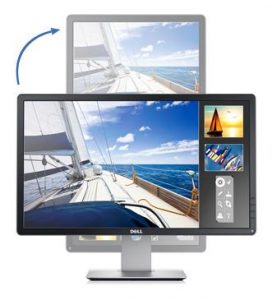
An additional extra feature that I really like about this monitor is that you can rotate it — so for coding I actually use it in portrait mode! It’s very handy!
(image source: dell.com)
Note: Some data scientists like to use multiple external monitors when they work. I’m not one of them (I only use one at a time). But maybe you’ll want to try that out, too. If so, double-check that the computer you buy can handle two external monitors, too! As far as I know, the computers that I recommended in this article can do that, but just in case, ask the seller before you buy.
Summary
So the main take-away from this article is this:
It doesn’t really matter what computer you choose for doing data science. Any fairly decent laptop will do the job.
But since you have to pick one anyway, it’s best if you choose one that fits well for a data scientist’s everyday life, too.
My specific recommendations are:
- Either a MacBook Pro 13″ (or 14″)
- Or a Dell XPS 13″ (or 15″)
And if you have another computer (and you are working as a data scientist) and you absolutely love it, please drop me an email and let me know! (I’ll feature the best recommendations in the article!)
Also, once you have the hardware, make sure you install the right software. Check out my computer setup for data science.
- If you want to learn more about how to become a data scientist, take my 50-minute video course: How to Become a Data Scientist. (It’s free!)
- Also check out my 6-week online course: The Junior Data Scientist’s First Month video course.
Cheers,
Tomi Mester
Cheers,
Tomi Mester
